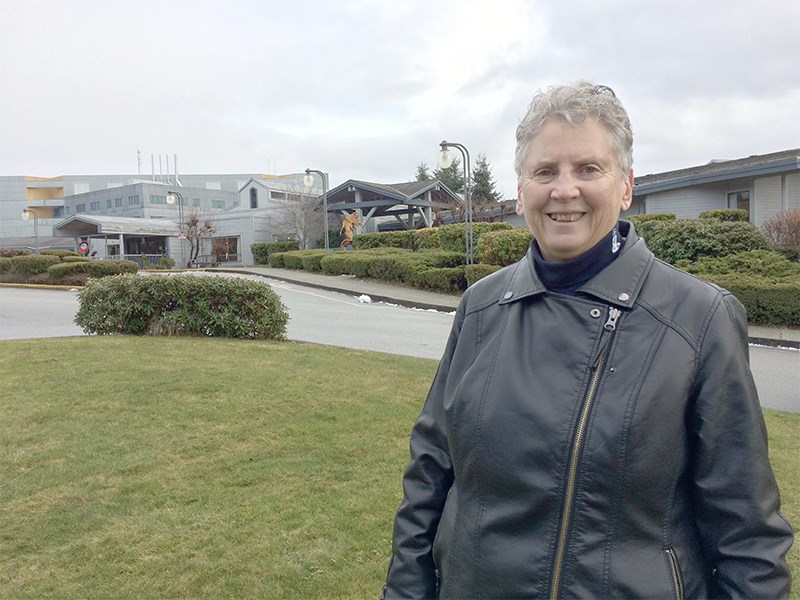Powell River has received funding for four hospice palliative care beds in the community, but it may take some time before any facility is established.
West Vancouver-Sea-to-Sky MLA Jordan Sturdy announced Tuesday, January 3, on behalf of BC health minister Terry Lake, that $1 million in provincial funding has been designated for improved access to hospice palliative care in Powell River, the Sunshine Coast and Squamish.
“Ensuring that everyone has compassionate care as their life’s journey draws to a close is critically important,” said Sturdy during the announcement at Squamish’s Hilltop House hospice. “Today’s announcement means those in need of palliative care, as well as families in Squamish and the Sea to Sky, Powell River and the Sunshine Coast, all have the supports they need.”
Powell River and Squamish received $400,000 for four new beds each and Sechelt received $200,000 for two additional beds.
Powell River Hospice Society president Heather Baldwin said the funding, which the society has been waiting on for more than a year, is a solid step toward enhancing end-of-life care in the community.
“It’s what we want and really need here,” said Baldwin. “There are a lot of people who don’t have enough support to be able to stay at home; that’s where most people prefer to die. It takes a lot of people and support to be able to do that and hospice is the next best thing. It can be really great if it’s set up and staffed right. That’s our hope.”
Powell River-Sunshine Coast MLA Nicholas Simons said he congratulates Powell River Hospice Society and its supporters who have been advocating for provincial funding.
“It really speaks to the strength of these people,” said Simons. “I’m glad that they were able to advocate for this, even if it is pre-election spending.”
Currently, one bed at Powell River General Hospital can be used for palliative care, if it is unoccupied, though there are resources available for home-care nurse support and pain-management home visits from local physicians.
Vancouver Coastal Health (VCH) regional medical director for home, community and palliative care Peter Edmunds said the announcement comes as BC Ministry of Health pushes health authorities to increase end-of-life care capacity by 2020.
VCH is working on strategies to support people to stay at home as well as achieve a home death if possible, but for those who do not have the necessary supports to be able to do that, hospice palliative care is the next best thing, he said.
The model across the health authority is to attach the hospice beds to an existing facility, preferably a residential care facility, added Edmunds.
Simons said his father spent his last days in hospice and that it’s a remarkably important service for someone at the end of their life, as well as their family and loved ones.
“It really addresses the end-of-life needs,” said Simons. “We’re grateful that the public contributes to this important social need. This is appropriate investment of public money.”
At this point, more discussions and fundraising is necessary before the four beds are established. Ultimately, where they are located will need to come from the community, said Edmunds.
“Local solutions are needed, so we need to work with the hospice society, community physicians and residents to work out what’s best,” said Edmunds. “There’s a lot of work to do in Powell River.”
Edmunds emphasized that the palliative care strategy of Powell River physicians is strong and the health authority endorses it to continue. He added that the additional beds should be seen as an opportunity to enhance that care and the health authority has committed to staffing the beds once they are established.
Baldwin said she will be meeting with local VCH administrators to talk about what may be possible. She estimates the society will need more than $1 million for the project to move forward.
“It’s certainly a good thing for us,” she said. “We need the beds, but as far as where they are going to be or what it’s going to look like, at this point I don’t know.”



